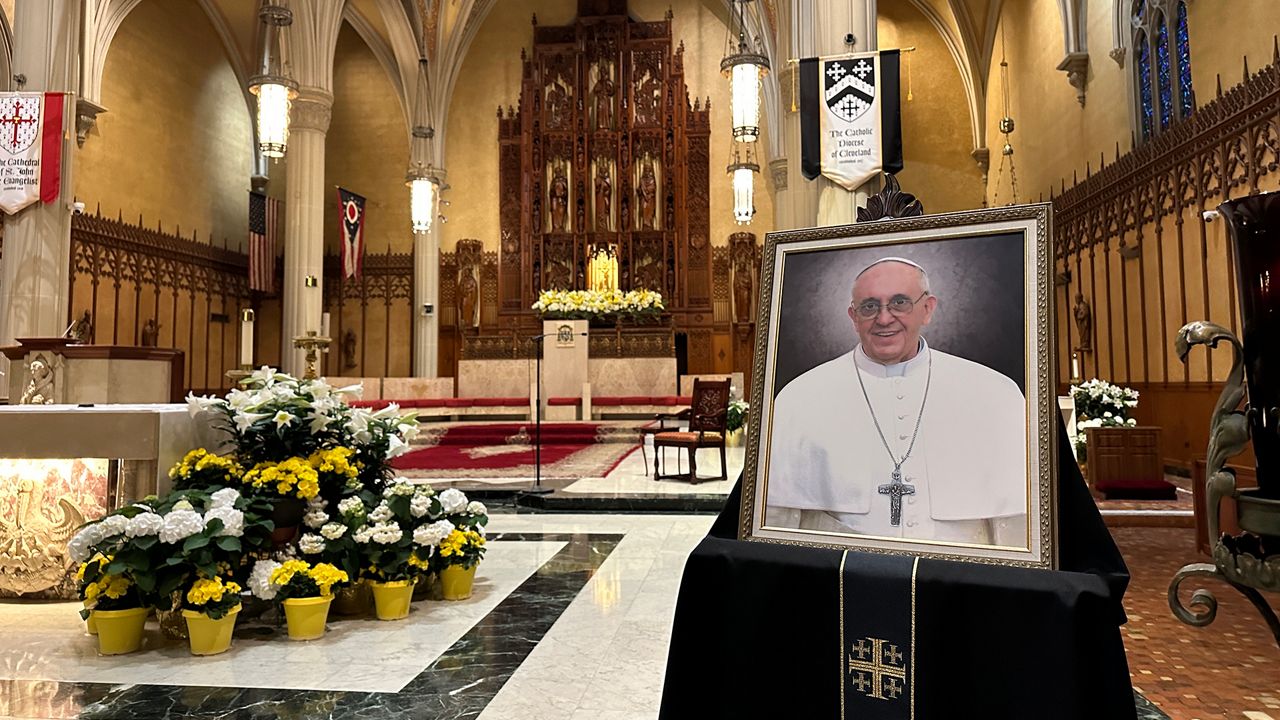OHIO — Samantha Leszkowicz takes meticulous notes of everything, every day.
“I won’t remember if I took my supplements, or I don’t remember if I turned the stove off, or just day-to-day basic tasks that I was once able to remember is just very difficult for me now," she said.
Writing in journals helps with her brain fog. That’s just one of many symptoms she attributes to COVID-19.
Leszkowicz first got sick in March 2020.
“Shortly after, I got diagnosed with double pneumonia," Leszkowicz said. "My lung bases collapsed. I was bed bound for three months.”
Leszkowicz was 24 when she was diagnosed with COVID-19. She was working as a nurse and engaged to her highschool sweetheart. She describes herself as perfectly healthy at the time.
“I just loved life and now having to depend on other people for help is super hard knowing that my background, I was always helping other people," she said.
Now, at age 26, her life is unrecognizable as a COVID-19 long-hauler.
“Chest pain, shortness of breath, horrible joint pain, muscle pains," she said. “My hands and my legs shake and have tremors. I get horrible migraines. Sensitivity to sound, light.”
That’s just the tip of the iceberg. Her mental health has suffered in the last two years, too. She said it’s been an isolating experience.
“I loved being around family and friends and now it’s just something that’s so difficult," Leszkowicz said. "Like it’s a task for me to try to go out and about and just kind of pretend that I’m OK even though deep down I’m miserable. I’m in pain. I just want to go back home and go to bed.”
Cleveland Clinic’s counseling focused support group for people with long COVID-19 has helped her feel less alone.
Since 2020, Leszkowicz has been diagnosed with rheumatoid arthritis, POTS, which causes her to faint, and a few months ago she learned she has chronic lyme disease.
All are conditions she never had before COVID-19.
“It’s insane just what the effects of COVID can do and how it can cause all this," she said. "Like when you get the flu, you don’t really suffer this much after and that’s really all I thought COVID was, just a simple flu and I’ll be fine."
Despite the 32 supplements and medications she takes daily, not much helps. Leszkowicz wants to know why and is looking for answers about her lingering and growing list of symptoms.
She has worked with more than 30 doctors, received infusions to help manage pain and researches holistic medicine options.
“It’s all trial and error and that’s what sucks, honestly," she said. "Like I buy all these things and all of this is out-of-pocket, even testing. The lyme disease testing was $1,500 out-of-pocket, and it’s something definitely that was worth it just to help get more answers as to why COVID-19 long-haulers are suffering and it’s been helpful to look outside the box of traditional medicine."
Even though life has been hard lately, her rescue dog, Zeena, helps keep her going.
“She always knows how to make me laugh," she said. "She has a perfect sense of humor and just being outside and just realizing how beautiful everything is, is so helpful just to look at the little things in life and I do try to keep a positive outlook and I think being outside helps remind me of that.”
Leszkowicz refuses to give up hope.
“This is where I’m hoping to go once I get better," she said, while pointing to a picture of a Florida beach that serves as a motivation for her to continue searching for ways to heal.
“As a nurse, I’m not OK saying this is how you’re going to live the rest of your life," she said. "And I’m just hoping that one day I can put this in my past.” “As a nurse, I’m not OK saying this is how you’re going to live the rest of your life," she said. "And I’m just hoping that one day I can put this in my past.”
Since March of this year, the Cleveland Clinic has been organizing 6 week virtual support group sessions for COVID-19 long-haulers like Leszkowicz.
It includes eight people at a time and there’s often a waitlist to join.
One psychologist who started this group, Dr. Kia-Rai Prewitt, said it seems to be making a difference to have these patients connect with others who can relate.
“Normalizing what I would call a grief process as far as changes, losses in ability," Prewitt said. "We focus on coping skills, asking for help. Just validating that this is a process and so if you don’t accept where you are right now, that’s OK, that’s understandable. It will take time."
A lot of patients in the support group are referred from the reCOVer Clinic at Cleveland Clinic, which supports COVID-19 long-haulers.
Prewitt said call 216-587-8335 and select option 3 to be directly connected to someone who can offer more information about the support group to learn more.
Editor's Note: The previous version of this story referred Dr. Kia-Rai Prewitt as a physiologist instead of a psychologist. This has been corrected. (Sept. 14, 2022)










